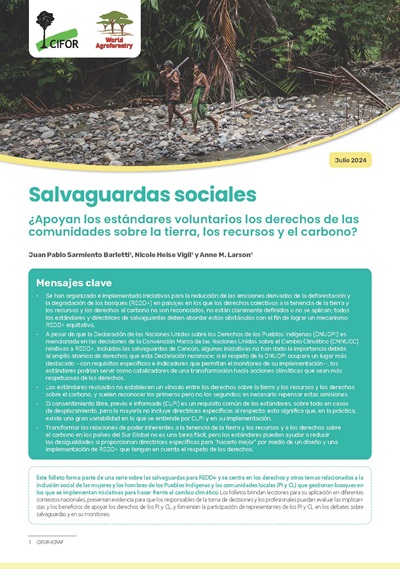In this book, CIFOR analyses trends, opportunities, problems and challenges of forestry decentralization in Nicaragua, identifying its consequences particularly for poor forest-dependent groups, and proposing a research and action agenda for the democratic governance of forest resources in consultation with such groups and other key actors. This publication is one of the outputs of a larger CIFOR study also carried in Bolivia, Brazil, Guatemala and Honduras, which investigates forestry decentralization processes and, in particular, their effects on forest-dependent groups. In the Nicaraguan case study the author argues that grassroots participation in local development decisions is necessary but insufficient for more equitable access to forest resources and benefits for poor forest communities; in addition, these groups and their advocates need to defend their interests by exerting strategic pressure on local governments. The book examines the nature of Nicaragua's forestry sector, the national context of financial, administrative and political decentralization and its relation to other development and poverty alleviation policies, the legal and institutional framework of forest management and the roles played by regional and municipal governments, and the problems faced by forest-dependent groups for gaining access to forest resources and benefits and the effects of decentralization on these processes.
Download:
Année de publication
2006
Auteurs
Larson, A.M.
Langue
Spanish
Mots clés
decentralization, forestry, governance, traditional society, community forestry, rural communities, interest groups, forest economics, participation, livelihoods, environmental impact, forest management, democracy
Géographique
Nicaragua



















